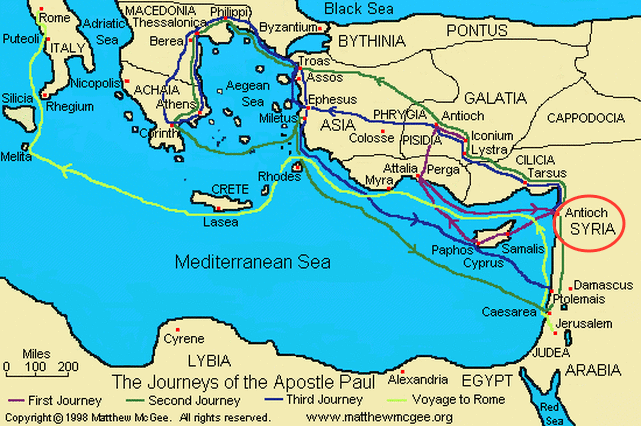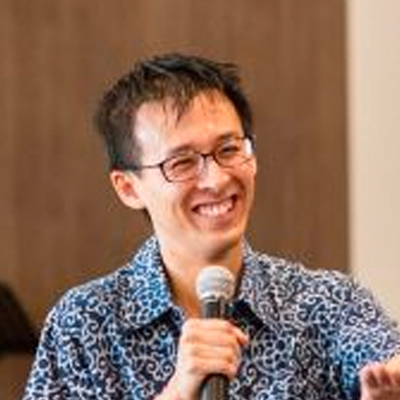Ask the average Christian in our local churches: they would be excited about being the “Antioch of Asia”, but would possibly be quite clueless as to what it means.
A gateway to the nations? A missions hub?
What does it exactly mean to be an Antioch? What burden falls upon the church of Singapore, supposedly the gateway to the nations of Asia?
UNDERSTANDING ANTIOCH
Looking back at history, the first city called Antioch was named after Antiochus. He was the father of Seleucus I, founder of the Greek Seleucid empire in the fourth century BC.
Antioch became Seleucus’ capital by virtue of its strategic location along major trade routes (like Singapore). By the time of Jesus and the Apostles, Antioch was a multi-cultural, multi-religious centre in the Roman Empire (like Singapore again)!
Under persecution from the Jewish authorities (Acts 11:19–26), the early disciples were driven out of Jerusalem and some came to take refuge in Antioch. It is striking then that God would take this pagan city and redeem it for His own good purposes by making Antioch a safe-haven for His people.
By the marvellous hand of God, this church grew steadily, to the point where non-believers began to take notice of them, and started to call them by a unique name – Christians (Acts 11:26), or “Followers of the Christ.”
Thereafter, Antioch would become a launching pad, a gateway city for missions throughout the Roman Empire and even to the East (Persia and China). Antioch was the place for the early Church to learn the universal reach of the good news of the Kingdom of God.

The Church in Antioch was a multi-cultural, multi-ethnic Christian community. The first believers were Jewish, and they started preaching to the Hellenists (Jews who embraced Greek culture). The leadership team of the church — the prophets and teachers — was an ethnically inclusive one.
In fact, Antioch was a key place where the Church learnt that the Gospel of Jesus Christ was good news for both Jews and Gentiles; you did not have to adopt Jewish customs in order to be a Christian. It was a place where the Church would express reconciliation and peace between all peoples and cultures in Christ!
Furthermore, Antioch set an example for Christian global relief (Acts 11:27–30). Their work cut across cultural lines — both Greek-acculturated Jews and Gentiles collected relief aid that was to be sent to the Jewish Christians in Judea for a future time of famine.
The church in Antioch was also strong in its missionary sending (Acts 13:1–3). Paul and Barnabas (their best people!) were set apart, commissioned, and sent out to preach the good news and plant churches elsewhere in the Gentile world.
I love the pioneering and generous spirit of these early Christians, and how they integrated Good News and good works. So often we find churches leaning strongly on one side to the point of neglecting the other. These two must go together. It’s never a question of either this or that, but both this and that. You cannot bring about true kingdom transformation without having people get reconciled with the King.
How can we continue the missional, pioneering spirit of Antioch today?
UNITY IN THE SINGAPOREAN CHURCH
For the Church in Singapore, can we learn to work across barriers and affirm what we share in the faith? I don’t mean that we ignore fundamental differences in doctrine (these things must be discussed and sorted out), but can we find areas for working together?
Can we critically examine our own cultural practices, especially where it prevents us from truly welcoming or loving our neighbour who is unlike us? Or the foreigner who has arrived at our doorstep?
If we have fallen “too deeply in love” with our own denominational “distinctives” or worship cultures, then some walls need to be torn down.
If our local Church communities are predominantly monocultural, hailing from a single socio-economic or ethnic group, then there is much work to be done. If we have fallen “too deeply in love” with our own denominational “distinctives” or worship cultures, then some walls need to be torn down.
Can we be a Church united across denominations and ethnicities in pursuing God’s mission? If we are to be known for only one thing, let it be that we are followers of Christ.
I think this can only happen if we remember what it means to be a Christian: One who follows the life and example of our Lord Jesus — the man who taught us what it means to live a life of radical service and costly obedience, so that the lost can come to the Father, through the Son, by the Holy Spirit.
This is the way of Christ, and it is the way for His Church to get involved in God’s mission.
Perhaps to get back to the heart of being Christian, we must draw one more lesson from the church in Antioch. They were a community that worshipped the Lord, fasted, and prayed (Acts 13:2–3).
In this way, they placed themselves in a posture of readiness to be immersed in wonder of an awesome God and to share in His heartbeat for the total redemption of all creation in Christ. Ready to go, when the Spirit says “Go.”
This may be the reformation for our time, for our Antioch destiny.
“For from the rising of the sun to its setting my name will be great among the nations, and in every place incense will be offered to my name, and a pure offering. For my name will be great among the nations, says the LORD of hosts.” (Malachi 1:11)
This article was first published on Selah.sg and is republished with permission.










